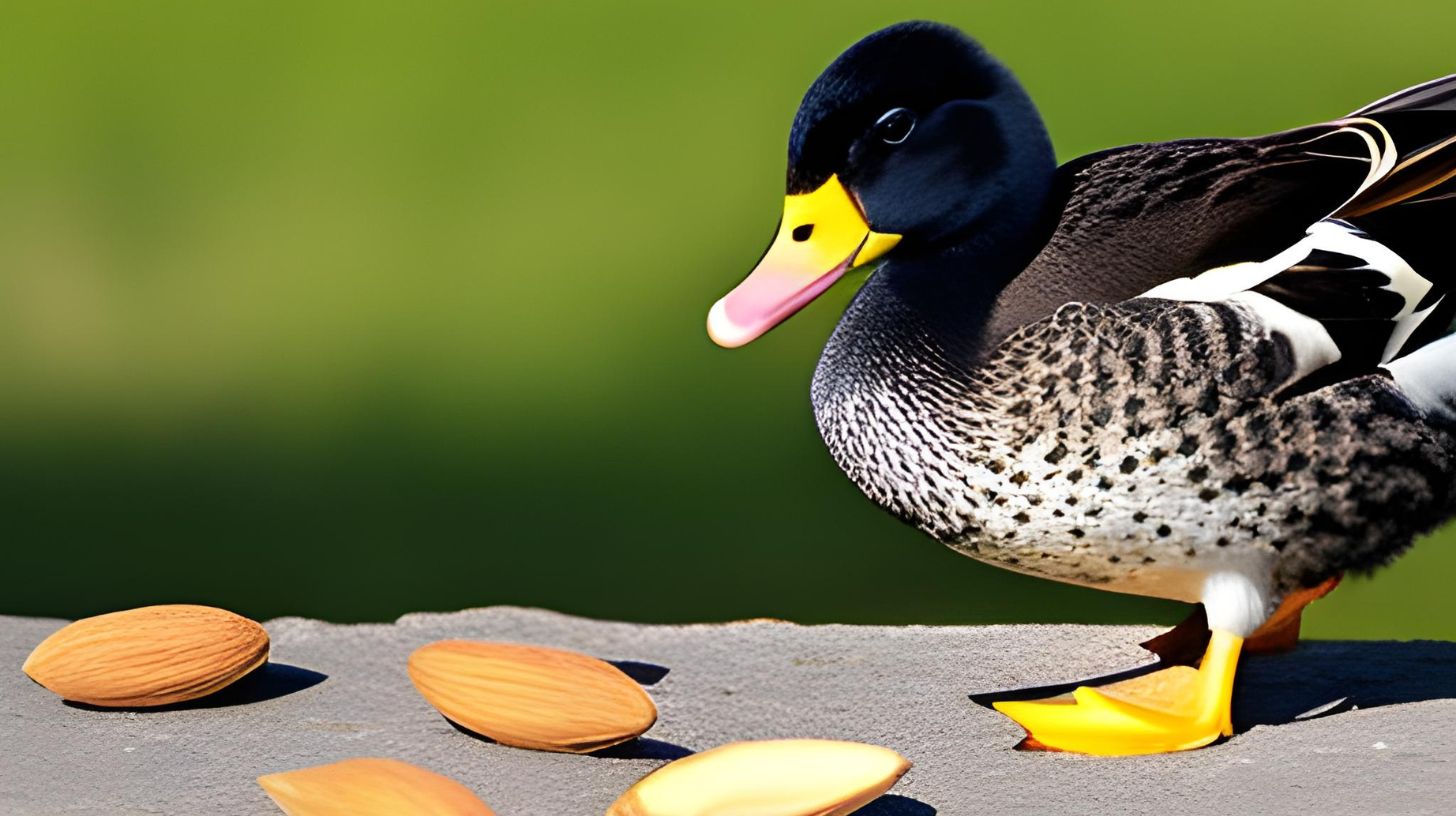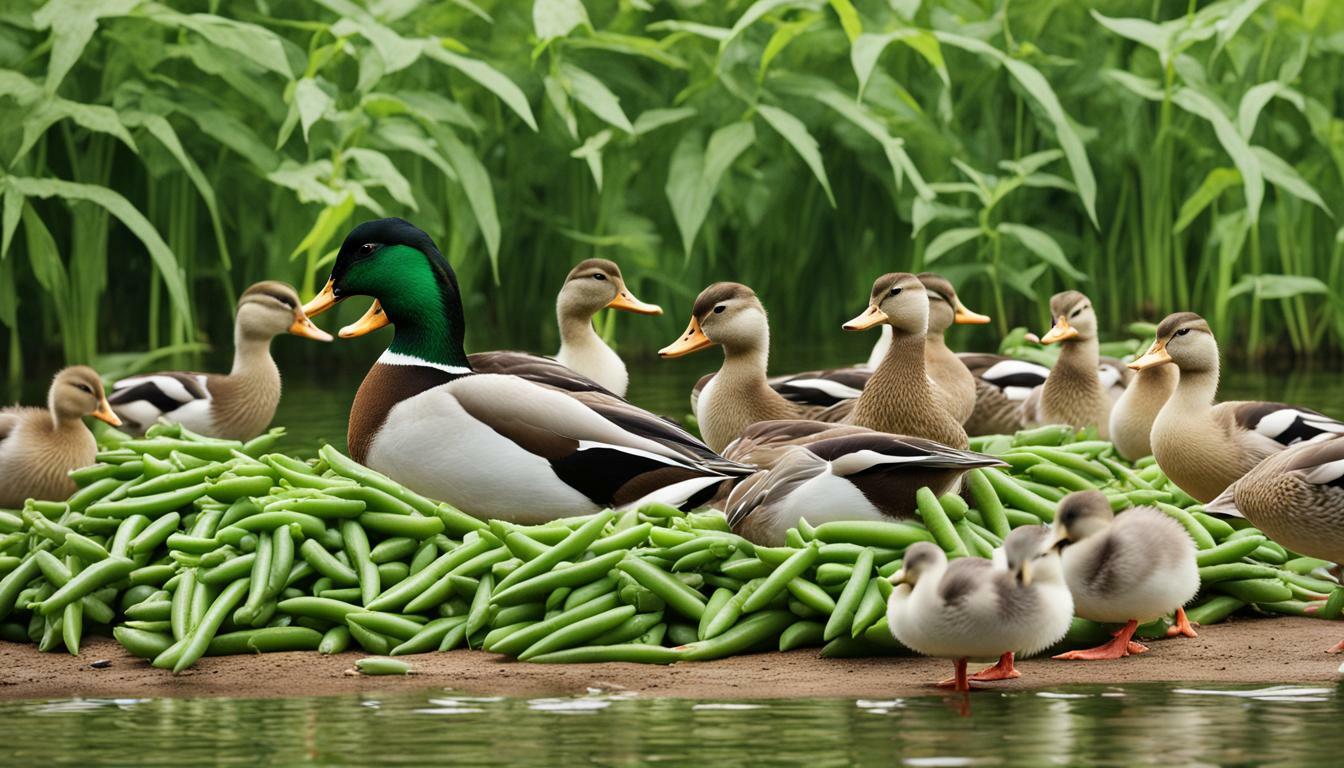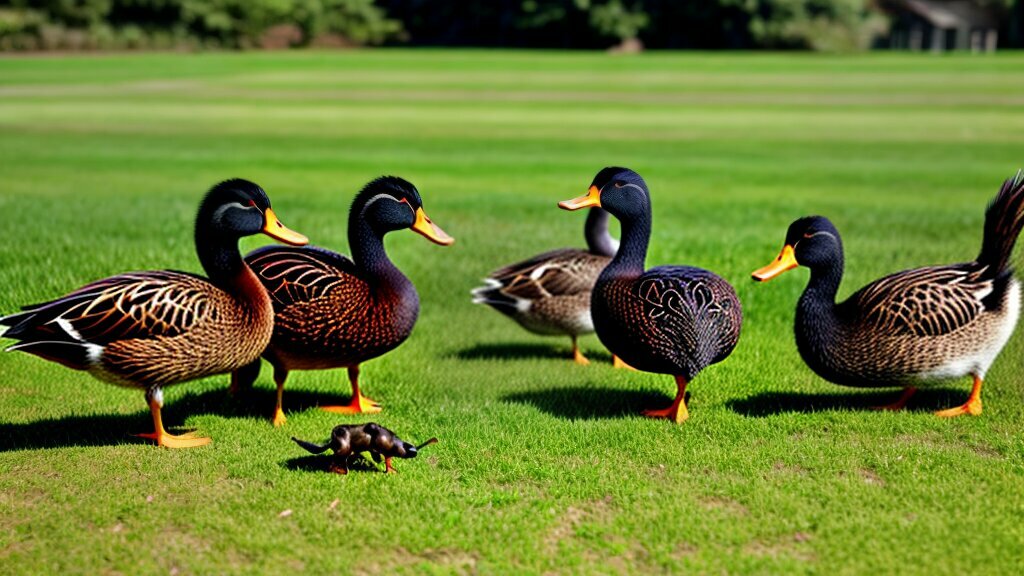What Happens When Ducks Eat Garlic? Impact and Risks
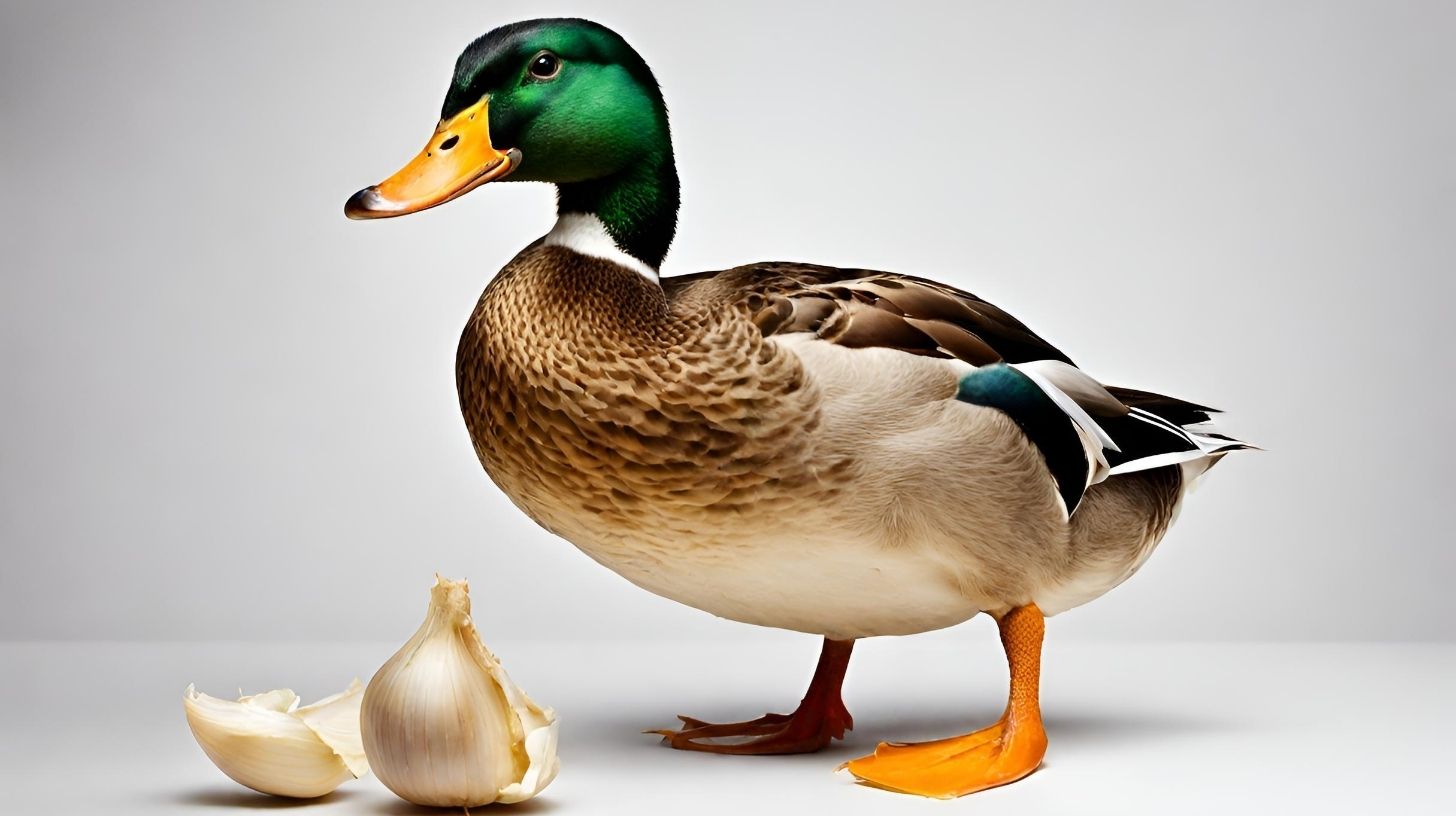
Table of content:
Garlic is an interesting addition to many cuisines, with its sharp flavor and aroma. But what about our feathered friends? Can ducks eat garlic?
The simple answer is yes. Ducks can eat garlic safely and even benefit from small amounts. However, there are some important precautions to take when feeding ducks garlic.
Key takeaways:
- Garlic is generally safe for ducks to eat in moderation.
- Feed ducks small amounts of raw or cooked garlic no more than a few times per week.
- Garlic can provide some health benefits but too much may cause digestive issues.
- Avoid garlic salt, powder, or garlic greens as they may be too strong.
- Baby ducks should not eat garlic until at least 3 months old.
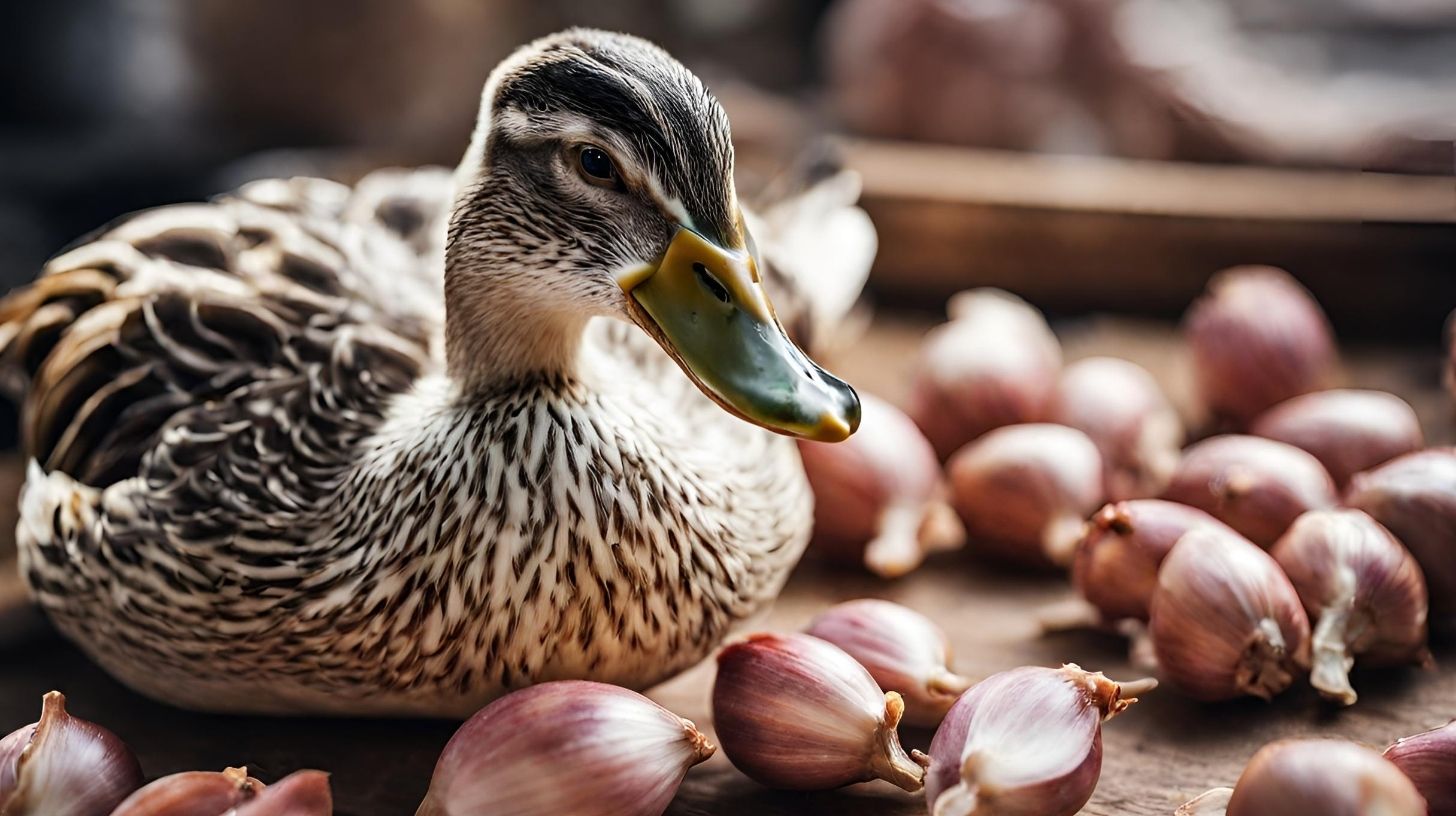 Is Garlic Safe for Ducks?
Is Garlic Safe for Ducks?
Garlic contains a compound called thiosulphate which can cause hemolytic anemia in pets if consumed in excess. Hemolytic anemia is a condition where red blood cells burst.
However, ducks can safely consume reasonable amounts of garlic. Studies show that relatively high doses of garlic fed over extended periods are needed to cause hemolytic anemia in dogs and cats.
The occasional clove or small amount of cooked garlic is unlikely to harm ducks when fed in moderation. It’s best to limit garlic to no more than one or two times per week.
What Kinds of Garlic Can Ducks Eat?
Ducks can eat garlic in its fresh, raw clove form as well as cooked garlic. Raw garlic cloves or cooked garlic added to duck feed are the safest options.
Avoid feeding ducks:
- Garlic salt
- Garlic powder
- Dried or crushed garlic
- Garlic greens and leaves
These forms of garlic are highly concentrated and may contain thiosulphate levels unsafe for ducks. Even small amounts could cause problems.
Fresh cloves and cooked garlic are safest because they provide the flavor and health benefits of garlic without as much risk of thiosulphate toxicity.
Do Wild Ducks Eat Garlic?
Wild ducks will sometimes eat garlic if it’s growing near water sources. However, wild ducks have diverse diets and forage on a variety of greens, seeds, insects, and other foods.
Domestic ducks do not have this diverse foraging ability. As a result, moderation is especially important when feeding household ducks.
Health Benefits of Garlic for Ducks
When included as an occasional treat, garlic offers some benefits for duck health:
- Antimicrobial effects – Garlic contains allicin and other compounds that may suppress harmful bacteria, viruses, protozoa, and yeasts. This can support immune function and healthy digestion in ducks.
- Antioxidants – The phytochemicals in garlic act as antioxidants. This may boost cell health and immunity.
- Cardiovascular benefits – Some research shows garlic supports circulation and heart health in humans. These same benefits may extend to ducks.
However, there is limited research on garlic’s effects specifically in ducks. The benefits are likely minimal if garlic is only fed occasionally.
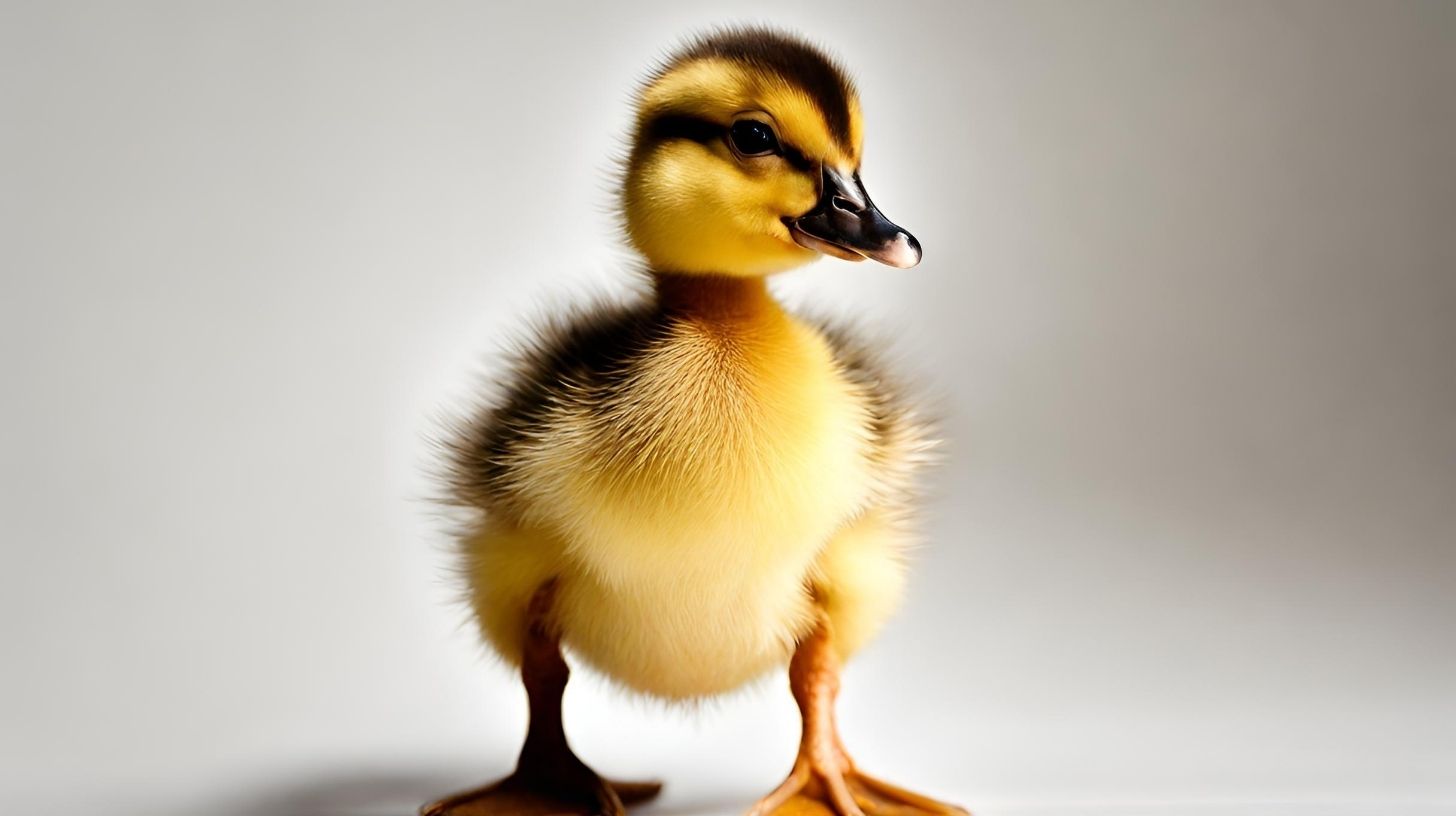 Can Baby Ducks Eat Garlic?
Can Baby Ducks Eat Garlic?
Garlic should be avoided for young ducklings under 3 months old.
Baby ducks have more sensitive digestive systems. The thiosulphates and other compounds in garlic can irritate their gut lining and cause diarrhea.
Wait until ducks are at least 3 months old before introducing small amounts of garlic. Gradually transition them to adult duck feed.
How Much Garlic Can Ducks Eat?
When feeding fresh garlic, limit intake to:
- No more than 1 small clove per duck
- 1-2 times per week at most
For cooked garlic, aim for:
- No more than 1/4 teaspoon per duck
- 1-2 times per week
Consuming garlic daily or in large amounts may cause gastrointestinal irritation, diarrhea, vomiting, or anemia. Moderation is key.
| Form of Garlic | Max Amount | Frequency |
|---|---|---|
| Raw garlic clove | 1 small clove per duck | 1-2 times per week |
| Cooked garlic | 1/4 teaspoon per duck | 1-2 times per week |
Can Ducks Eat Garlic Bread?
Plain garlic bread and garlic toast are not recommended for ducks.
Garlic bread typically contains butter, oils, and seasonings like salt that can be unhealthy. Stale garlic bread may also cause digestive upset or choke hazards.
For a healthier garlic-flavored treat, toast wheat bread and lightly rub it with a cut garlic clove. Avoid adding butter, oils or salt. Then cut the toast into duck-sized pieces before feeding.
Safe Ways to Feed Ducks Garlic
Here are some safe ways to add garlic to a duck’s diet:
- Finely mince raw garlic and mix it into duck feed. Use just 1 small clove per duck maximum.
- Cook garlic cloves by sautéing, boiling, or roasting. Let them cool before chopping into duck-friendly pieces.
- Add minced or cooked garlic on top of green leafy veggies or duck pellets.
- Offer a piece of wheat toast lightly rubbed with garlic.
Avoid overdoing it with garlic to prevent toxicity. Stick to no more than 1-2 times weekly and watch for any signs of GI distress.
Signs of Garlic Poisoning in Ducks
Consuming too much garlic can cause:
- Loss of appetite
- Listlessness
- Pale mucous membranes
- Weakness
- Greenish diarrhea
- Vomiting
- Dark or bloody urine
- Jaundice
- Anemia
- Death
If a duck shows these symptoms after eating garlic, take it to a veterinarian immediately. Treatment may include intravenous fluids, blood transfusions, and other supportive care.
Prevent poisoning by only feeding minimal garlic and monitoring carefully for symptoms.
What Other Foods Can Ducks Eat?
In addition to garlic in moderation, ducks can also eat:
- Leafy greens – kale, lettuce, spinach, Swiss chard
- Chopped veggies – broccoli, carrots, peas, squash
- Pears, grapes, melons, berries
- Cooked oats, barley, rice
- Mealworms, maggots, larvae
- Crickets, grasshoppers
- Duck feed pellets and grains
Avoid salty, spicy, or sugary human foods. Onions are also toxic to ducks.
For best nutrition, choose a quality duck feed and supplement with small treat amounts of vegetables, fruits, and proteins. Supply fresh water at all times.
FAQs About Ducks Eating Garlic
Can I feed my ducks garlic every day?
No, you should not feed ducks garlic daily or even more than 1-2 times per week. Too much garlic can be toxic to ducks’ red blood cells and cause anemia. Moderation is important.
What happens if ducks eat a lot of garlic?
Consuming large amounts of garlic can poison ducks, resulting in diarrhea, vomiting, weakness, and even death in extreme cases. Limit garlic to reduce this risk.
Is crushed garlic safe for ducks?
No, avoid feeding ducks crushed, dehydrated, or powdered garlic. These forms are too concentrated and may contain high levels of compounds that could damage red blood cells.
Can I grow garlic greens in my duck pen?
It’s best not to let ducks freely eat garlic greens. The leaves may have higher concentrations of thiosulphates compared to cloves. Limit access to prevent overconsumption.
Will raw garlic hurt my ducks?
Raw cloves are unlikely to cause problems when fed occasionally in small amounts. Start with just 1 clove per duck, 1-2 times weekly at most. Observe for any digestive issues.
Can baby ducks have garlic?
Garlic should be avoided until ducklings are at least 3 months old. Babies have sensitive digestive systems and garlic can cause gut irritation or diarrhea. Wait until they mature before slowly introducing garlic.
Conclusion
Ducks can eat garlic in moderation as an occasional treat. Focus on raw cloves or cooked garlic a couple times a week. Avoid large amounts or more concentrated forms of garlic.
Monitor ducks closely when first offering garlic and discontinue use if any irritation occurs. When fed carefully, garlic can add flavor and health benefits to a duck’s diet without risk of toxicity.
Welcome. I’m Adreena Shanum, the proud owner of this website, and I am incredibly passionate about animals, especially poultry. I founded adreenapets.com as a labor of love, stemming from my desire to share my knowledge and experiences with poultry enthusiasts worldwide.


